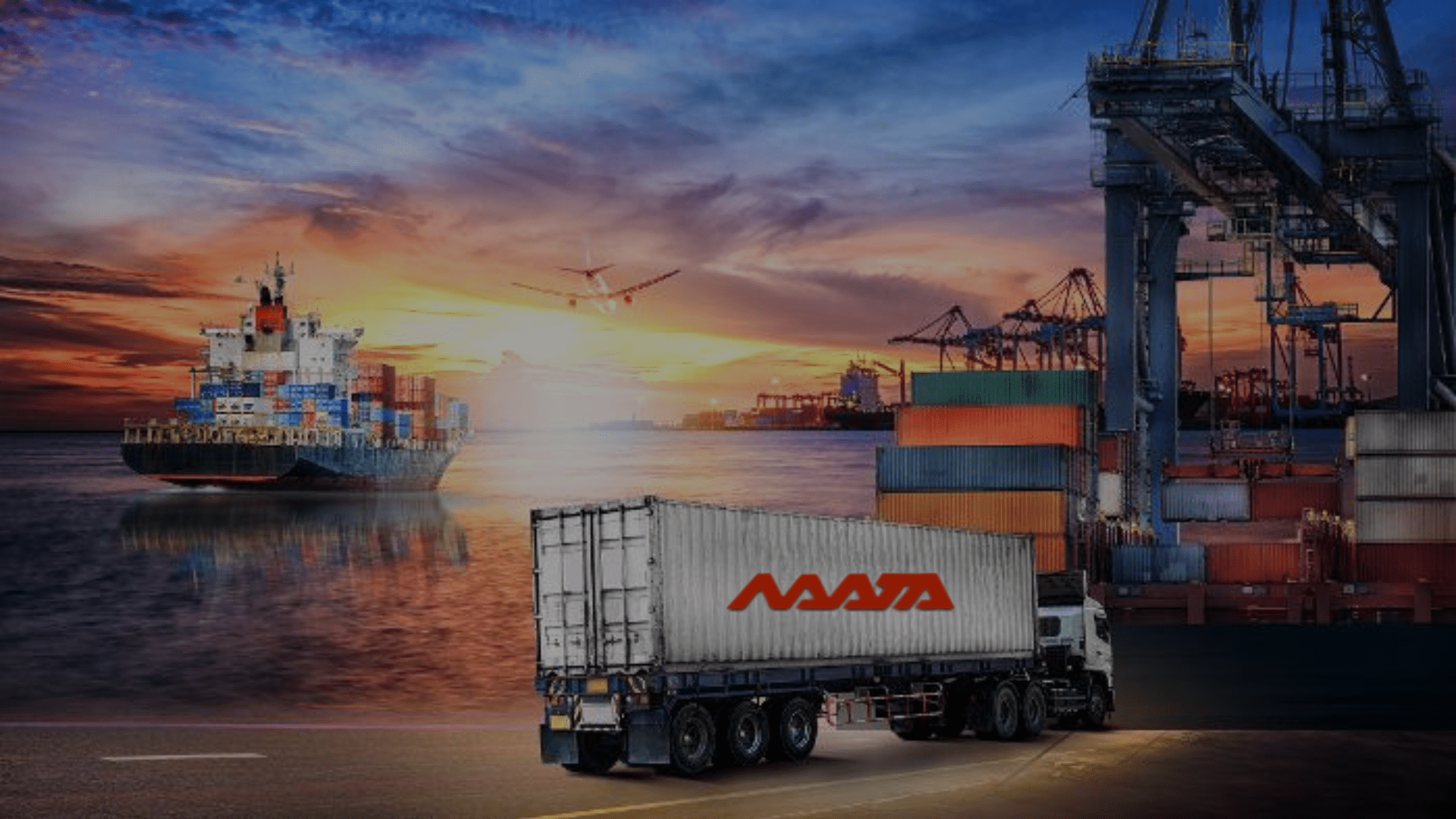Starting a Logistics Business by following these 8 Savvy Steps
Table of Contents
Setting-Up A Logistics Business - A Step-by-Step Guide
Kick-starting a Transport and Logistics company is undoubtedly a great and amazingly lucrative business idea. To initiate the business is not the difficult part. The challenge is to stay on top and maintain the success chart. The success of the Transport and Logistics business depends on 3 key players, – a foolproof business plan, adequate finances and a sound recruitment strategy, right from the word go.
Transport and Logistics is a highly competitive industry because of the industry’s low barrier to entry, making it easy for anyone to enter the arena. Hence, irrespective of whether it is a business plan of a “buggy” or a minibus, intense and cut-throat competition is the unwritten rule of the game.
Also Read: Transportation and Logistics
Why Should One Opt For The Logistics Industry?
The past few years have seen a remarkable growth spurt in the Indian economy, resulting in a dramatic increase in opportunities and openings in the market for Logistics services. The Indian Logistics Industry employs over 50 million people.
It is an understood fact that for any business, transport and supply chain are an integral part. Operating Systems of any business can be made significantly more cost-effective and efficient, by establishing an efficient logistics network that helps cut down cost and delivery time. The net result of an efficient Logistics network is enhanced profits and market share for the business.
Access to the Logistics Industry is relatively easy. Also, there is no real need for huge capital investment to start off.
However, what is really required is solid groundwork. A well-done research and homework, having all the know-how and tools, is the only way to structure a sustainable business.
You Might Also Like To Read: Logistic Industry In India
Kick-Starting A Logistics Business
Narrowing down on the kind of market to enter is the first step. Starting the Logistics Company in the chosen market is the second step.
The following steps provide a guideline that helps a Logistics company to get kick-started efficiently, ensuring success and profitable returns.
1. Logistic Registration and Compliance
Proper registration and compliance certifications are necessary for the logistics business. Services, like any other business, need to acquire and complete all necessary documentation of registrations to be obtained, as also government compliance. These registrations and documentations are country specific.

In India, the mandatory registrations are as follows:-
- It is mandatory for freight forwarders to register with the International Air Transport Association (IATA), and the Air Cargo Agent Association of India (ACCAI).
- It is necessary for the logistics company to be a member of industry forums such as the Institute of Logistics, so that issues concerning the logistics industry may be raised amidst adequate hearing, to improve the efficiency of the industry. This is essential for the company’s identity.
- Other important registrations in India include –
- Income Tax Department registration.
- DGFT registration.
- Documentation pertaining to Registrar of Companies and other departments.
Added to the above, Registrations for the Logistics business, suggested by Navata Road Transport, are as follows:
- Private limited company registration
- Import-export code
- VAT Registration
- ESI or PF Registration
- Trademark registration, in case of the unique brand name.
2. The Essential Costs and its Relevance
A clear understanding of the company’s finances is essential right from the start and goes a long way in ensuring the success of the logistics business from day one.
The first requirement is to establish the source of funds or capital investment for kick-starting the logistics business. There are multiple options like banks, investors, and bootstrapping.

The next step is to factor in the associated business expenses like –
- License and toll fees
- Maintenance costs
- Fuel prices
- Fees for driver development training
Locating and leasing a suitable business premise to protect all vehicles when off the road, is imperative. Proper investment and establishment of security features, such as CCTV monitoring, alarms, etc. is an absolute necessity.
3. Business Plan & Competition Research and Its Structuring.
Going over every single detail and aspect of the business helps to uncover loopholes and loose ends that may have been overlooked. Hence, writing down the exact plan, in a proper structure, helps to cover all loose ends and uncover that which might have been missed. It helps to strategize the details pertaining to securing funds, to solve the early cash flow requirements. Self-financing everything at the start is possible. But growth might be slower in this case, than in the case of a business loan from the bank.

Liberalization of FDI (Foreign Direct Investment) norms has made it easier for multinationals to enter the Indian Logistics business Sector. This naturally intensifies the competition as these international players are backed with heavy funds and possess a huge capital investment potential, investing heavily in marketing and infrastructure. Hence it is important to do complete research on the competition, be backed with adequate free-flowing funds, and focus on the company’s positioning in the market.
4. The Choice of Suitable Vehicles for The Transport
Success of Logistic Services relies on time management and safe transport. Selection of the correct and suitable vehicles for the transport is imperative as it means that the drivers will have the right vehicle for the job, ensuring efficiency and speed of service.
The size of the cargo and the vehicle must be suitable for each other to build trust, credibility, and professionalism. The experts of Logistics services say that a small cargo and a huge vehicle, or a small vehicle and a huge cargo, both send out a signal of unprofessionalism and must be avoided at all costs.

The correct and suitable vehicle for a job leads to greater productivity, and professionalism, and helps provide the customers with dependable service. Hence, if the need is to transport large cargo for long journeys, it would be smart to invest in a long-haul truck.
5. Finding Best Business Insurance
Business insurance is a critical necessity for a logistics business. It is the fallback cushion. Business insurance provides financial coverage for a variety of claims such as personal injury, property damage, vehicle damage, and workers’ compensation. Different company profiles have different requirements. Finding a suitable and right insurance for a business, online, is a wise option. Such an insurance plan can be customized and designed as per the company’s requirements.
6. Employing The Best Drivers for the Transport Business
in the logistics business No matter how good your vehicle is, a bad driver can cause immense damage to the business. It is not only high-quality vehicles that are important. A skilled workforce, and trained and efficient drivers, are hyper-essential for the company’s productivity, reliability, profitability, and success.
The right attitude and experience are prerequisites for a driver, along with relevant licenses, to be legally and psychologically qualified to operate the company’s vehicles. When recruiting drivers, it is imperative to practice personal judgment, beyond reviewing the documents.

The company can avoid serious issues and entanglements with the law, and with the customers, by recruiting qualified and experienced drivers right from the start. Good, efficient, reliable drivers help boost the company’s goodwill, and also increase productivity, enhance reliability and add a star rating to the company’s reputation.
Drivers must have the relevant driver’s licenses for different trucks, and the required training to handle driving in hazardous situations, like storms and heatwaves. Investing in excellent, skilled, and trained employees is a must for the company.
7. Pricing the Company Services
It goes without saying that one should charge more than one pays, in a business model. For example, the shipper should be charged more than the company pays for the carrier, in order for the logistics business to grow.
But the managing price is not a simple task. One needs to understand the market and have the ability to account for the manner in which seasonal transport changes rates. If not experienced in the market, it is wise to hire or consult someone with 10+ years of experience in the market, and ideally, someone who has managed a carrier sales team at a large 3PL, to help establish a proper pricing format for the company.
Also Read: The Future of Logistics
8. Starting with the Business and The First Contract
Reliability is a must in the transport business.
A business hiring a transport company needs to be sure that the transport company is trustworthy and true to its promises of timely, efficient, and safe delivery. Satisfied customers value trustworthy services. Hence, it is easy to earn the loyalty of existing clients when quality services are offered. And good, happy, and loyal customers encourage new business opportunities for the company, through positive recommendations.
The first contract is the key contract wherein the company can establish its trustworthiness.
Customers always look for consistency, quality services, and reliability. The key is to build trust in the clients and customers and earn loyal clients.

Conclusion
The challenges that come with running a successful transport and logistics business may be many, but the solution is the goodwill of reliability and quality. It is always a good idea to start with the logistics business that one is best acquainted with and is best qualified to handle and grow and expand from there.
Thanks For Reading: Starting a Logistics Business by following these 8 Savvy Steps
Powered By 360Presence




